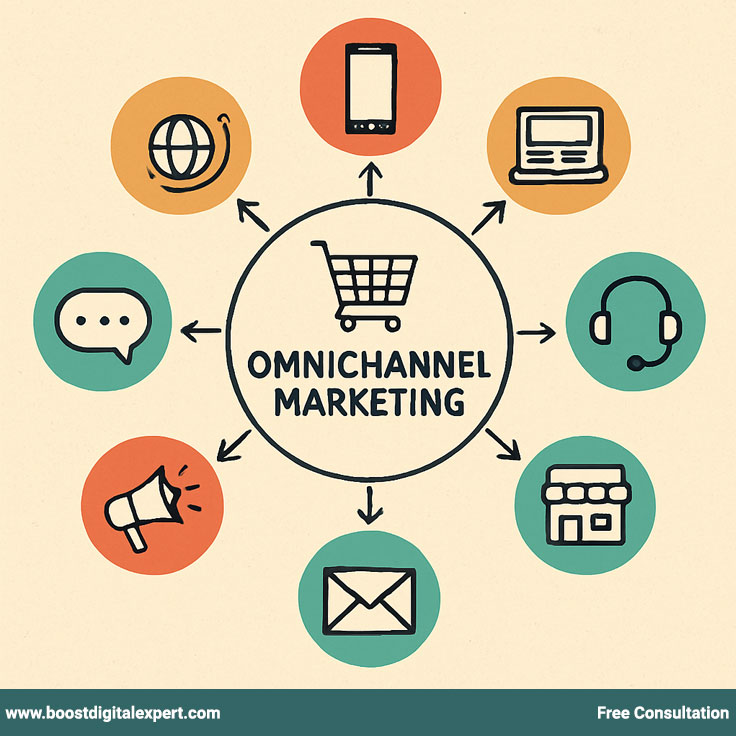In today’s rapidly evolving digital landscape, businesses are increasingly recognizing the importance of omnichannel marketing in delivering a seamless customer experience. However, implementing an effective omnichannel strategy is not without its challenges. Companies must navigate a complex web of channels and devices, ensuring that messaging and branding remain consistent while also addressing the unique preferences of their target audience. Additionally, the integration of data across platforms, managing inventory, and maintaining customer engagement can present significant hurdles. As organizations strive to create a cohesive shopping journey that spans online and offline interactions, understanding and overcoming these challenges becomes crucial for success in the competitive marketplace.

While omnichannel marketing offers numerous benefits, it also comes with challenges:
1. Integration Complexity
Integrating multiple channels can be complex and time-consuming. It requires the right
technology and expertise to ensure all systems communicate effectively.
Overcoming Technical Barriers
Integrating various systems and platforms can present technical challenges. Businesses must
invest in the right technology and expertise to ensure seamless integration and functionality.
Ensuring System Compatibility
Compatibility between different systems is crucial for successful integration. Businesses
should evaluate their current technology stack and make necessary adjustments to
facilitate smooth communication between channels.
Streamlining Processes
Streamlining processes is essential for reducing complexity in omnichannel marketing.
By simplifying workflows and eliminating redundancies, businesses can improve
efficiency and focus on delivering a seamless customer experience.
2. Consistency Across Channels
Maintaining consistent messaging across all channels can be challenging, especially for larger
organizations. It requires careful planning and coordination.
Aligning Brand Messaging
Consistency in brand messaging requires alignment across all channels. Businesses must develop
clear guidelines and communicate them to all teams involved in marketing efforts to ensure coherence.
Coordinating Marketing Efforts
Effective coordination between teams is crucial for maintaining consistency. Regular communication and collaboration between departments help ensure that everyone is aligned and working towards the same goals.
Monitoring and Adjusting Strategies
Continuous monitoring is essential for maintaining consistency. Businesses should regularly review their strategies and make adjustments as needed to ensure messaging remains aligned with brand values and goals.
3. Data Management
With data flowing from multiple channels, managing and analyzing it can be overwhelming. It’s essential to have robust data management systems in place.
Implementing Data Management Solutions
Robust data management solutions are crucial for handling large volumes of data. These solutions help businesses organize and analyze data efficiently, providing valuable insights for decision-making.
Ensuring Data Accuracy
Data accuracy is vital for reliable insights. Businesses must implement processes to regularly clean and update data, ensuring that it remains accurate and relevant.
Protecting Customer Data
Data security is a top priority in omnichannel marketing. Businesses must implement measures to protect customer data and comply with relevant regulations, ensuring trust and confidence among their audience.
Conclusion
Omnichannel marketing is not just a trend; it’s a necessity in today’s digital landscape. By providing a seamless and integrated experience, businesses can enhance customer satisfaction, increase reach, and gain valuable insights. Whether you handle it in-house or partner
with a digital marketing agency, the key is to start integrating your channels and focusing on the customer journey. With the right strategy and tools, you can transform your marketing efforts and drive business growth.
One of the best things about omnichannel marketing is that it creates a seamless and consistent customer experience across all touchpoints—whether online, in-store, on social media, email, or mobile apps. By integrating multiple channels, businesses can engage customers at the right time and place, increasing convenience, trust, and loyalty. It allows brands to understand customer behavior through unified data better, personalize interactions, and deliver value-driven messages that resonate more effectively. Ultimately, omnichannel marketing not only boosts customer satisfaction but also drives higher conversions and long-term business growth. Consult Now!









Leave a Reply